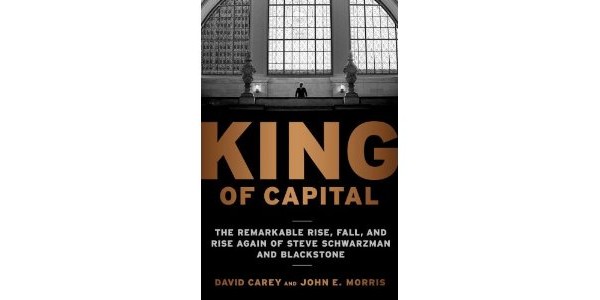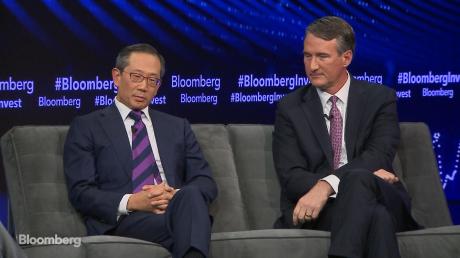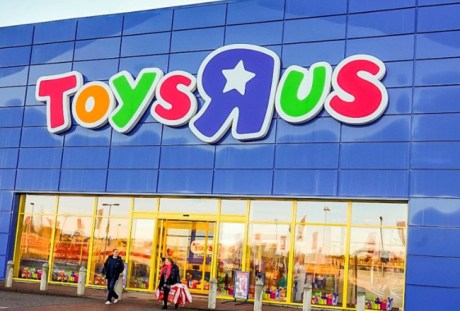“[A] three-dimensional portrait, which emerges from a close analysis of Blackstone’s biggest deals.” — The Wall Street Journal
“[T]he book colorfully recounts the busted deals and hotheaded personalities in Blackstone’s rise to the top.” — Fortune
“The authors link Blackstone’s history to the larger story of private equity’s expansion and its relationship to corporate America.” — The Economist
#1 on FINS.com‘s The Top Five Books for a Career in Private Equity:
“[Carey and Morris] pull back the curtain on Steven Schwarzman, the CEO of Blackstone.”
King of Capital has sold more than 80,000 copies in English and over 100,000 in the Mandarin edition. The book has also been translated into Japanese, Korean, Russian and Turkish.

“Carey and Morris brilliantly lay out the development of the firm through an exploration of its deals – both the successful and the utterly dismal investments – and its investment team….. The book was both entertaining and educational….” MotivStrategies.com
The Blackstone Group was little known outside Wall Street until two events in 2007 catapulted it onto the public stage: the lavish sixtieth birthday party of its CEO Steve Schwarzman and the firm’s IPO a few months later. They advertised to the broader world what Wall Street had long known – that Blackstone had eclipsed better known private equity firms such as KKR and the Carlyle Group, both in size and profits. By then Blackstone owned all or part of fifty-one companies which together employed 500,000 people and raked in $171 million a year in revenue. more . . .
 as a rising star at Blackstone in the late 1990s, pondered setting up his own shop in 1999, but Steve Schwarzman enticed him to stay by agreeing to raise a $2 billion, dedicated media and telecommunications fund that Gallogly would lead. Gallogly eventually left in 2005 to form Centerbridge. (See King of Capital, pp. 152-157, 192-193.)
as a rising star at Blackstone in the late 1990s, pondered setting up his own shop in 1999, but Steve Schwarzman enticed him to stay by agreeing to raise a $2 billion, dedicated media and telecommunications fund that Gallogly would lead. Gallogly eventually left in 2005 to form Centerbridge. (See King of Capital, pp. 152-157, 192-193.)
 Carlyle Group’s new co-CEOs Kewsong Lee and Glenn Youngkin discuss how they see the market for private equity investing in
Carlyle Group’s new co-CEOs Kewsong Lee and Glenn Youngkin discuss how they see the market for private equity investing in 
![merlin_137677371_bd7f2a66-0ecd-4e24-a58a-f95dd5ff997b-superJumbo[1]](https://king-of-capital.com/wp-content/uploads/2018/05/merlin_137677371_bd7f2a66-0ecd-4e24-a58a-f95dd5ff997b-superjumbo1.jpg?w=460)